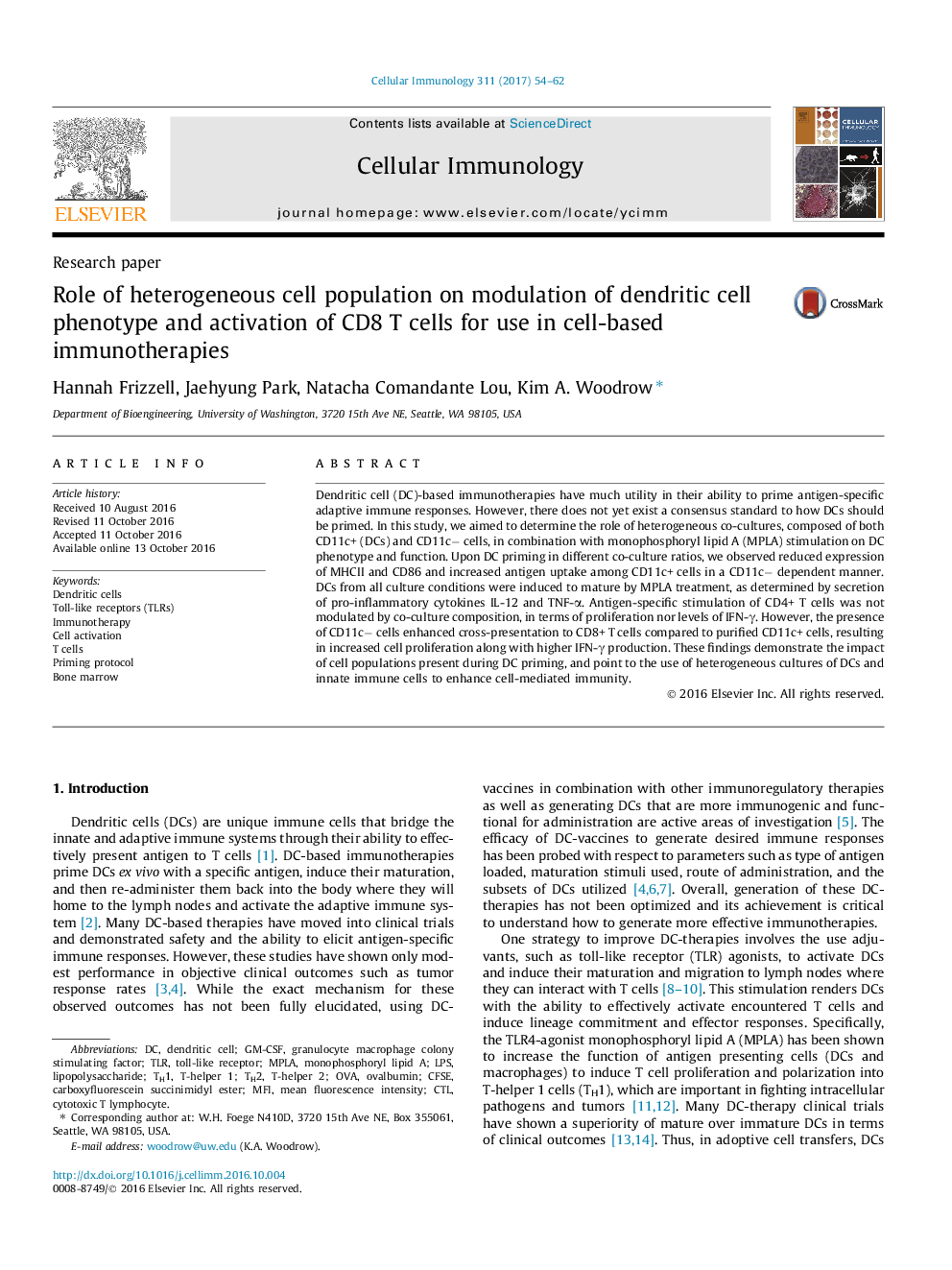| Article ID | Journal | Published Year | Pages | File Type |
|---|---|---|---|---|
| 5530750 | Cellular Immunology | 2017 | 9 Pages |
â¢Co-culture with CD11câ cells reduced TLR4-induced DC maturation.â¢DC antigen uptake enhanced through co-culture with CD11câ cells.â¢Presence of CD11câ cells during priming did not reduce CD4+ T cell proliferation.â¢CD8+ T cell proliferation enhanced by DC co-culture with CD11câ cells.
Dendritic cell (DC)-based immunotherapies have much utility in their ability to prime antigen-specific adaptive immune responses. However, there does not yet exist a consensus standard to how DCs should be primed. In this study, we aimed to determine the role of heterogeneous co-cultures, composed of both CD11c+ (DCs) and CD11câ cells, in combination with monophosphoryl lipid A (MPLA) stimulation on DC phenotype and function. Upon DC priming in different co-culture ratios, we observed reduced expression of MHCII and CD86 and increased antigen uptake among CD11c+ cells in a CD11câ dependent manner. DCs from all culture conditions were induced to mature by MPLA treatment, as determined by secretion of pro-inflammatory cytokines IL-12 and TNF-α. Antigen-specific stimulation of CD4+ T cells was not modulated by co-culture composition, in terms of proliferation nor levels of IFN-γ. However, the presence of CD11câ cells enhanced cross-presentation to CD8+ T cells compared to purified CD11c+ cells, resulting in increased cell proliferation along with higher IFN-γ production. These findings demonstrate the impact of cell populations present during DC priming, and point to the use of heterogeneous cultures of DCs and innate immune cells to enhance cell-mediated immunity.
Graphical abstractDownload high-res image (210KB)Download full-size image
